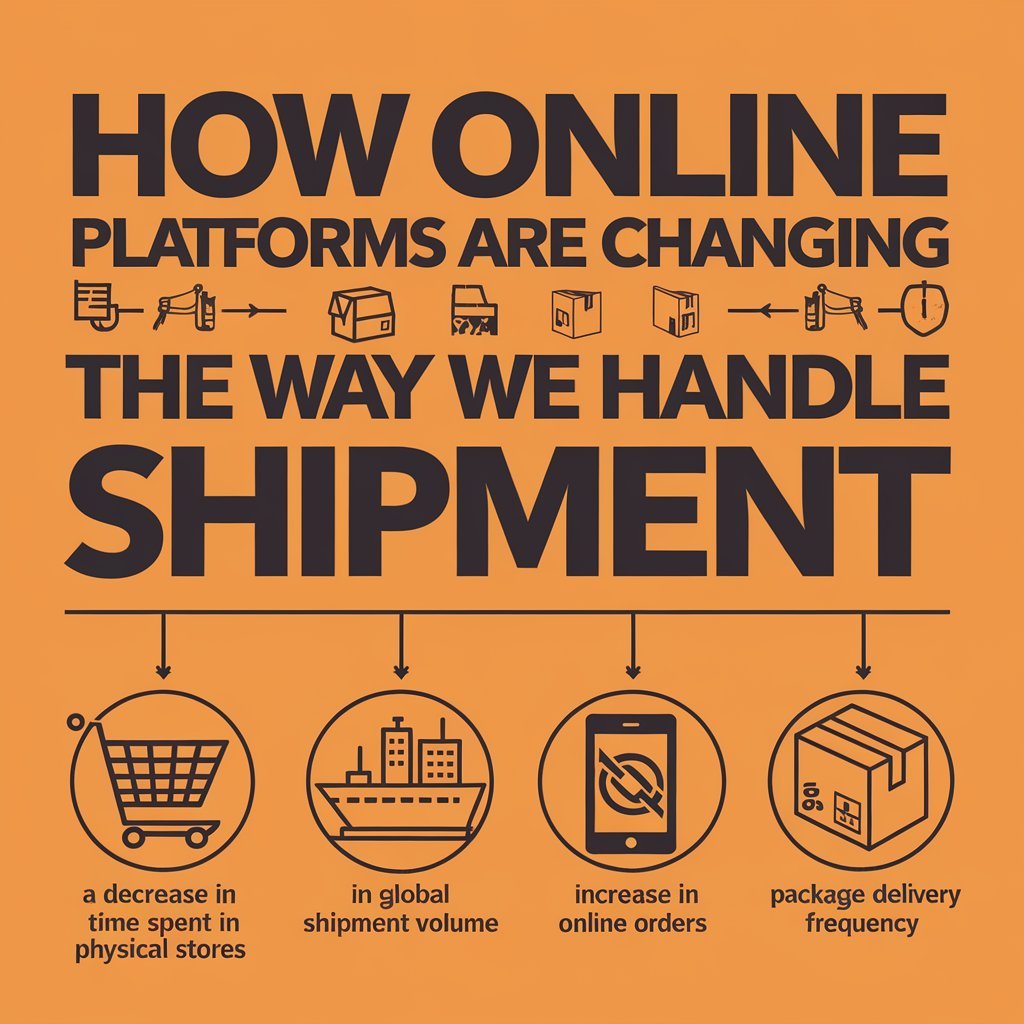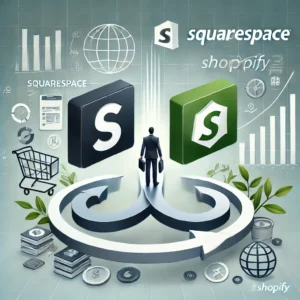The logistics and shipping industries have undergone a revolution in recent years, driven by the growth of online platforms.
These platforms, powered by advanced technology and data-driven insights, are reshaping the way that individuals and businesses handle shipments. From optimizing delivery routes to providing real-time tracking, the digital transformation is delivering efficiency, transparency, and convenience like never before.
In this blog, we’ll explore how online platforms are transforming shipment handling, covering their impact on global trade, the rise of automation, customer experiences, and sustainability efforts.
The Evolution of Shipment Handling
Traditionally, shipping processes were manual and often inefficient. Businesses relied on paper-based systems, phone calls, and physical visits to shipping offices to arrange deliveries and track parcels. This system was time-consuming and prone to human error, leading to delays and increased costs.
However, the introduction of online platforms has modernized every aspect of shipment handling. Digital tools now allow companies to streamline their operations, reduce costs, and enhance customer satisfaction. Key developments include:
Cloud-Based Logistics: These systems offer centralized data storage, making it easier for companies to access information and coordinate across locations.
Integrated Platforms: Many online platforms provide end-to-end solutions, from booking shipments to managing inventory and processing returns.
Shiply.com is an excellent example of an online platform that connects businesses and individuals with shipping providers, enabling them to find affordable and efficient shipment solutions for both domestic and international deliveries.
Real-Time Tracking: A Game Changer for Transparency
One of the most significant advancements brought by online platforms is real-time shipment tracking. Customers and businesses can now monitor their parcels’ journey at every stage, from the warehouse to the final destination.
Benefits of Real-Time Tracking
Enhanced Customer Experience: Real-time updates give customers peace of mind and build trust in the service provider.
Improved Efficiency: Businesses can quickly identify and resolve delays, ensuring smooth operations.
Data-Driven Insights: Tracking systems generate valuable data, helping companies to optimize delivery routes and schedules.
Notable platforms like FedEx, UPS, and Amazon have set high standards for transparency in logistics, offering user-friendly interfaces that keep customers informed.
Automation and Artificial Intelligence in Shipping
Automation and artificial intelligence (AI) are driving efficiencies in the shipping industry. Online platforms are leveraging these technologies to handle complex logistics tasks, including inventory management, route optimization, and demand forecasting.
How Automation Is Transforming Logistics
Automated Warehouses: Platforms like Alibaba and Amazon have pioneered the use of robots in warehouses, speeding up the picking, packing, and shipping processes.
Smart Route Planning: AI algorithms analyze traffic patterns, weather conditions, and delivery priorities to find the most efficient routes.
By reducing reliance on manual labor, automation cuts costs and minimizes errors, ultimately enhancing the reliability of shipment services.
The Role of Marketplaces in Streamlining Logistics
Online platforms have also created marketplaces that connect shippers with carriers, making logistics more accessible to small and medium-sized businesses (SMBs). These marketplaces act as intermediaries, helping businesses to find affordable shipping solutions.
Advantages of Logistics Marketplaces
Cost Savings: Businesses can compare rates from multiple carriers and choose the most cost-effective option.
Scalability: Marketplaces allow SMBs to scale their operations without having to invest in their own fleets or warehouses.
Flexibility: Shippers can find tailored solutions for specific needs, such as temperature-controlled transportation or expedited deliveries.
Popular examples include platforms like ShipBob, Flexport, and Freightos, which cater to both domestic and international shipping needs.
Sustainability Efforts in Digital Logistics
Sustainability has become a top priority for many industries, including logistics. Online platforms are playing a crucial role in promoting eco-friendly practices by optimizing shipping routes, reducing waste, and adopting greener technologies.
Eco-Friendly Innovations in Shipping
Carbon-Neutral Shipping: Platforms like Shopify and DHL offer carbon-offset programs to help businesses and consumers minimize their environmental impact.
Electric and Autonomous Vehicles: Companies are investing in electric delivery vans and drones to reduce carbon emissions.
Efficient Packaging: Platforms encourage sustainable packaging practices, reducing the volume of materials used and promoting recyclability.
By integrating sustainability into their operations, online platforms are meeting the growing demand for environmentally responsible shipping options.
Enhancing Customer Experiences with Online Platforms
The rise of online platforms has fundamentally altered customer expectations in shipping. Speed, convenience, and flexibility are now the standard, and businesses must adapt to remain competitive.
Key Features Driving Customer Satisfaction
On-Demand Delivery: Customers can choose same-day or next-day delivery options through platforms like Uber Freight and GoShare.
Flexible Pickup and Drop-Off Locations: Many platforms allow customers to select convenient pickup points, such as lockers or local stores.
Seamless Returns: Online platforms have streamlined the return process, providing prepaid labels and hassle-free collection options.
These features not only enhance customer satisfaction but also boost loyalty and retention.
Cross-Border Shipping Simplified
Global trade has greatly benefited from the rise of online shipment platforms. Traditional challenges like customs clearance, documentation, and currency conversion are now easier to manage with digital tools.
Facilitating International Shipments
Customs Automation: Platforms like Easyship and ShipStation handle complex customs procedures, ensuring compliance with local regulations.
Real-Time Currency Conversion: Online platforms provide accurate cost estimates in different currencies, simplifying international transactions.
End-to-End Visibility: Businesses and customers can track shipments across borders, reducing uncertainty and improving reliability.
These innovations are particularly valuable for e-commerce businesses looking to expand globally.
Challenges and Future Trends
While online platforms have revolutionized shipment handling, they also face challenges, including cybersecurity threats, data privacy concerns, and infrastructure limitations in certain regions.
Overcoming the Challenges
Enhanced Security Measures: Platforms are investing in encryption and robust cybersecurity frameworks to protect sensitive information.
Infrastructure Development: Partnerships with local governments and logistics providers are helping to expand access to remote areas.
Continuous Innovation: By adopting emerging technologies like blockchain and 5G, online platforms can further enhance efficiency and reliability.
The Future of Digital Logistics
The future of shipment handling lies in further integration of technology, including:
Drone Deliveries: Promising faster and more eco-friendly last-mile deliveries.
Blockchain for Transparency: Ensuring secure and tamper-proof shipment records.
AI-Driven Personalization: Tailoring shipping options to individual customer preferences.
Conclusion
Online platforms have undeniably transformed the way we handle shipments, bringing unprecedented efficiency, transparency, and convenience to the logistics industry. From real-time tracking and automation to sustainable practices and enhanced customer experiences, the digital revolution is setting new standards for what’s possible in shipping.
As technology continues to evolve, businesses and consumers alike can look forward to even greater innovations that will make shipment handling faster, greener, and more reliable than ever before. Whether you’re a small business owner or a global corporation, leveraging these platforms is no longer optional—it’s essential for staying competitive in a rapidly changing world.




